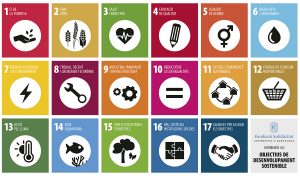It was one of the conclusions of the virtual seminar on the role of universities in the socio-educational inclusion of refugees and migrants.

The Solidarity Foundation of the University of Barcelona has organized, on November 25, through Zoom, one of the two multiplier events of the European project UNI(di)VERSITY (of which it is a partner), to discuss the role of universities in the social and educational inclusion of migrants and refugees.
The virtual seminar, which was attended by about sixty people from 11 European universities, presented the first result of UNI(di)VERSITY: the Atlas of Inclusion: Higher education diversity strategies for migrant and refugee inclusion.
Challenges for universities in the inclusion of refugees
In his welcome address, Markus González, Vice-Rector for Internationalization Policy at the University of Barcelona (UB), spoke about the challenges that universities face in accepting and including refugees and migrants:
- Institutionalize the programs: move from an approach that is born in specific units to a complete and comprehensive approach, where the whole university is committed to the inclusion process.
- Increase funds and resources (human and material), sufficient and formed.
- Integrate support programs for these individuals with general inclusion policies.
- Define the group of beneficiaries, based on the question of what these people need, to adapt the programs to their needs.
- Specify what universities should do. They have focused on incorporating a new group, with special needs, through language teaching, bridge courses, access protocols, enrollment exemption… But they know how to do much more: for example, promote research on the real needs of this group to generate knowledge; or, at the transfer level, participate in the training of professionals who work with refugees and people in similar situations.
- Evaluate policies well to be able to spot problems and improve.
- Network with other universities and non-governmental organizations, which are the ones who know the reality of the beneficiaries.
Opportunities for universities to include refugees
In the presentation of the Atlas of Inclusion, one of its authors, Henriette Stoeber (European University Association – EUA), explained that the fact of having institutional strategies or other central level steering documents in the field of diversity, equity and inclusion is crucial for the success of university support activities for migrants and refugees. Stoeber also said that moving away from project-based activities towards strategic approaches strengthens the overall coordination across actors and usually provides additional resources. And in general, the co-author of the Atlas has recommended acknowledging that diversity and inclusion are not merely a matter of the third mission of universities, but can contribute to the overall quality of higher education.
During the subsequent working session, the concepts of “diversity” and “inclusion” were discussed, as well as the actions (activities, projects, programs…) that the different universities are carrying out in relation to the inclusion of refugees and migrants. In this sense, the participants have addressed the dynamizing elements that allow to develop these actions; and, finally, they have worked on the challenges that organizations are facing for the inclusion of refugees and migrants, with an emphasis on situations, structures… which prevent or hinder the achievement or advancement of these challenges.
On the other hand, in the afternoon, the seminar also discussed the issue of access protocols and the homologation of degrees for the inclusion of migrants and refugees in the university. To deal with this matter, has been relied upon the head of Academic Management at the University of Barcelona (UB), Dèlia Monfort, and the delegate of the Complutense University of Madrid (UCM) for Diversity and Inclusion, Mercedes García-García, who have presented the experiences of their institutions. Afterwards, a discussion was opened on the main problems or situations that exist in this field and the possibilities and strategies to promote the access of migrants and refugees to the university.
This news is related to the following SDG of 2030 Agenda:










